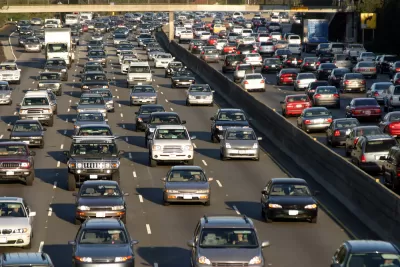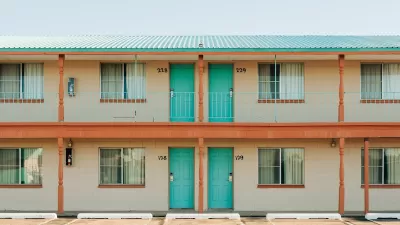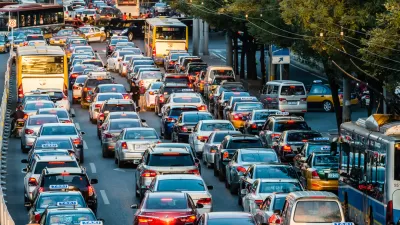A new analysis looks at how income and population density are related to car ownership and some ways that the design of cities can help lessen car dependence.

Henry Grabar writes about trends in car ownership rates and the relationship to the income levels and population density of cities. He asked Issi Romem of Trulia to analyze data for metropolitan areas across the country:
Here’s what Romem found: In dense, transit-rich cities like New York and Boston, vehicle ownership is more closely linked to population density than to income. What kind of neighborhood you live in is likely to align with whether you own a car, or two. In places like Los Angeles and Houston, vehicle ownership is much more closely tied to income. Families who make more money buy more cars.
He notes that some cities show a mix of factors. In Chicago, for example, the lowest-income areas have low car ownership rates, but ownership rates increase both with income and density. "On average, Romem finds, rising income and falling population density have approximately the same positive correlation with car ownership," says Grabar.
Grabar considers what these findings mean for policy and environmental initiatives like the Green New Deal. He suggests that city designs that support car driving as a choice rather than a necessity would provide the biggest environmental and social benefits.
"We can try to build more cities like these, where jobs are accessible by fast, frequent transit and housing is dense enough to support walkable amenities. Or we can make it possible for more people to live in the neighborhoods that have gotten something right," he concludes.
FULL STORY: Where Rich People Don’t Own Cars

Maui's Vacation Rental Debate Turns Ugly
Verbal attacks, misinformation campaigns and fistfights plague a high-stakes debate to convert thousands of vacation rentals into long-term housing.

Planetizen Federal Action Tracker
A weekly monitor of how Trump’s orders and actions are impacting planners and planning in America.

Chicago’s Ghost Rails
Just beneath the surface of the modern city lie the remnants of its expansive early 20th-century streetcar system.

Bend, Oregon Zoning Reforms Prioritize Small-Scale Housing
The city altered its zoning code to allow multi-family housing and eliminated parking mandates citywide.

Amtrak Cutting Jobs, Funding to High-Speed Rail
The agency plans to cut 10 percent of its workforce and has confirmed it will not fund new high-speed rail projects.

LA Denies Basic Services to Unhoused Residents
The city has repeatedly failed to respond to requests for trash pickup at encampment sites, and eliminated a program that provided mobile showers and toilets.
Urban Design for Planners 1: Software Tools
This six-course series explores essential urban design concepts using open source software and equips planners with the tools they need to participate fully in the urban design process.
Planning for Universal Design
Learn the tools for implementing Universal Design in planning regulations.
planning NEXT
Appalachian Highlands Housing Partners
Mpact (founded as Rail~Volution)
City of Camden Redevelopment Agency
City of Astoria
City of Portland
City of Laramie





























